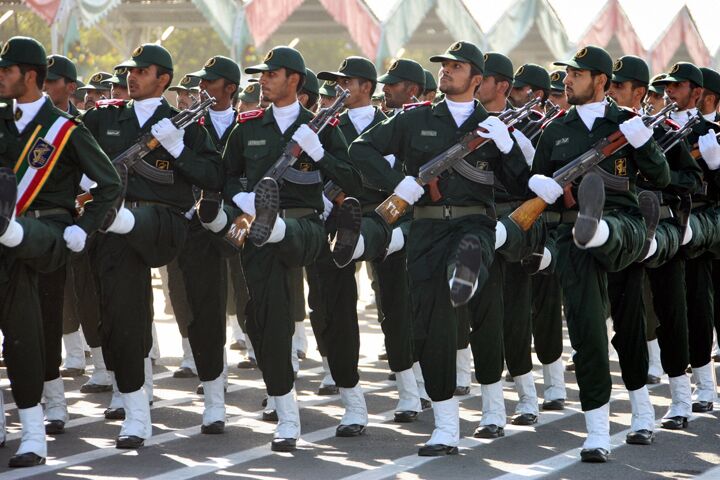
Iran’s Revolutionary Guard Uses Baghdad Embassy to Coordinate Attacks
The Iranian Revolutionary Guard Corps is covertly using Iran’s embassy in Baghdad as a staging center for attacks on Western forces, the National Council of Resistance to Iran (ncri) claims.
Mohammed Mohadessin, spokesman for the Paris-based Iranian opposition group, says five of the diplomats working at the embassy are currently involved in planning terrorist attacks. Citing intelligence obtained from Iranian sources, Mohadessin said the Revolutionary Guard has turned Iran’s Baghdad embassy “into the most important center for coordinating its terrorist and intelligence activities against coalition forces.”
In addition to the ncri, other organizations, including the U.S. military, believe Iran is using diplomacy to cover terrorist activity. According to David Petraeus, the U.S. general in charge of military operations in Iraq, the current Iranian ambassador in Baghdad is a member of the Revolutionary Guard’s Quds Force, which has a history of sponsoring terrorist activity. “They are responsible for providing the weapons, the training, the funding and in some cases the direction for operations that have indeed killed U.S. soldiers,” Petraeus said. How much of that flows through Iran’s embassy is unclear.
In January, the U.S. military detained five Iranian diplomats in Iraq whom it believed to be terrorist operatives. Tehran insisted they were only diplomats and nothing more. In September, Mahmudi Farhadi, an Iranian civilian official on a “commercial mission,” was also detained. Both Iran and Iraq condemned the U.S. for the arrests.
Iran’s attacks on American efforts to bring order and stability to Iraq are not just launched from worn-down homes and dusty caves. Iran is exploiting white-collar diplomats, right up to the level of the Iranian Embassy in Baghdad, to further its opposition to U.S. operations.
Some might consider using such public figures and a diplomatic facility for terrorist activity a risky and incriminating move on Tehran’s part. While that might be the case, the move also reveals the extent to which Iran, as the king of the south, is brazenly intent on forcing America out of Iraq.
